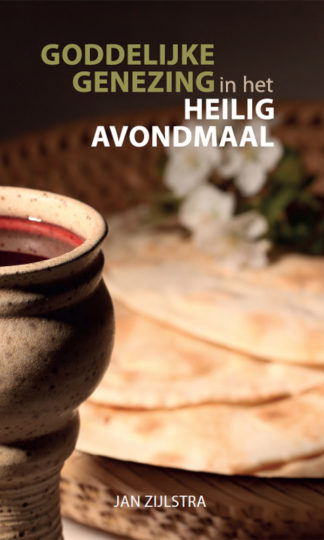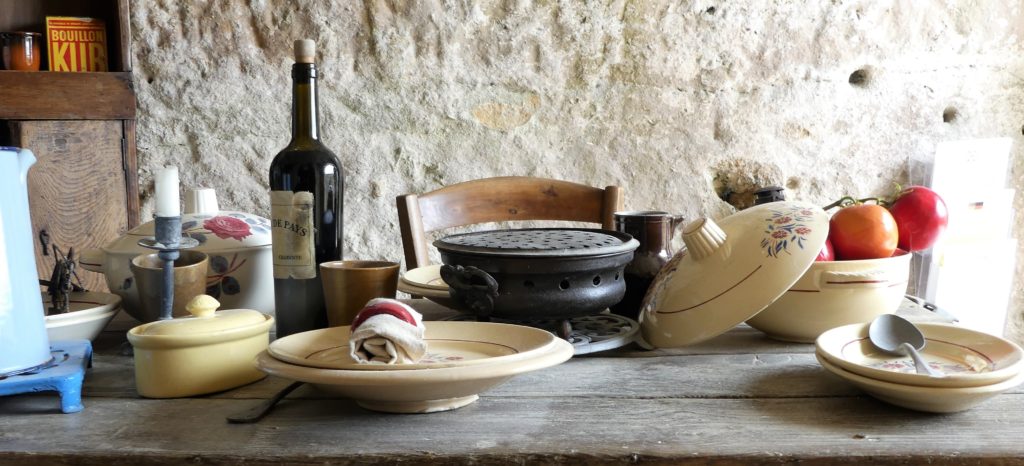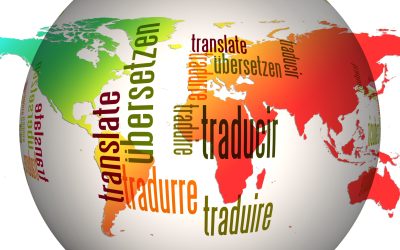The Lord Jesus instituted "supper" for His disciples as a meal of remembrance. He wanted them to continually remember what He did for them on the cross of Calvary. That is the christian worship In which it is about the work of Christ. Simply "breaking bread" and remembering Him; "Do this to My remembrance.
Unfortunately, in much of Christendom, the Lord's Supper is perceived as a sacrament, a sacred ritual, through which God or the divine is supposed to be experienced. I think two quotes about that sum it up well.
“For some, the remembrance of His life, suffering and death is central, others experience His presence at the meal or even the union with Christ, because He gives Himself in this sacrament. It can be experienced as a physical and ritual encounter with God Himself." (Source)
“The Christian ritual of supper or Eucharist is a specific example of such a sacred meal in which contact with the divine takes place (...)" (Source)
That the Roman Catholic Mass is a particular example of this, in which even "the unification with God" can be experienced, we have earlier seen already.
But now suddenly someone comes with a bizarre example from the charismatic world and drew my attention to a book by Joseph Prince. Prince - preacher of the prosperity gospel from Singapore - promises healing and health if you know how to eat the Lord's Supper. Then you can experience the power of that meal and the consequences are great.
Prince is not the only one teaching this these days, it is also being taught on the other side of the globe and Bill Johnson - the super-charismatic from California - has written a book about it. But even better, even "our" Dutch Jan Zijlstra is talking about it.
Apparently, in charismatic Christianity today, people assume that some kind of "magical power" emanates from the sacrament. Only they don't call it "magical power," but, for example, "divine healing" or "life and health.
Jan Zijlstra also claims that if you use the Lord's Supper properly, you will receive "divine healing. For example, the description in the webshop includes the following text.
"If we want to experience this full blessing, we will first of all have to know the meaning of the Lord's Supper. If we do not know this, then the blessing of the Lord's Supper will only come to us in a very limited way or will be completely missed by us.
Jesus had a strong desire to celebrate the first Supper with His disciples. He desired that the blessing associated with it should come to them. Prior to the Lord's Supper, Jesus had said in John 6:54, "Whoever eats My flesh and drinks My blood has eternal life."
As Israel was redeemed by the blood of the Passover, so we too will be redeemed by the blood of Jesus. As Israel was healed by eating the Passover so that they left Egypt not bowed down but upright and healthy, so we too will receive healing through the Lord's Supper."
It does seem that they tell each other their "dreams" as the prophets did in those days (see Jeremiah 23:27), thus they all present the same stories to their hearers. But since they are "lying prophets," we know from what source they draw these views.
Recently I read that Tom de Wal also parrots his "colleagues" and proclaims the same view in his book "Touching Jesus" (see here for a critical review of the book)
"According to Wal, the ceremony of the sacrament heals; it makes 'the power for healing' reach you. (p. 103-108). This is baffling. I quote, "We too may realize today how great the healing power of Jesus' body is and that that power is released when we partake of the Lord's Supper, when we take the covenant meal today under the New Covenant, we also receive the healing power in our body...” (pp. 105,106).
The power is released when we participate in the Lord's Supper."
A magical ritual
If you try to get an idea on the Internet about whether it is a well-known fact that you can get a mystical experience from eating, you soon find out that the answer is "yes. In the mystery religions, meals were among the rituals, and you come across it today as well. For example, there is a site 'Mindful eating' upon which I found the following poem.
Before the meal In the bread, is the grain, is the field, is the waxing moon, is the burning sun, is the plowing farmer, is the baker's hand, is the spring. Eating I taste the mystery, that is in all that is One. Poem by Hein Stufkens, from: What I serve.
Remarkably, it is articulated here that God ("the One") is in everything. That is the view of the pantheism, implying that 'god' is present in everything, including matter such as food. When that is your view (or your 'belief)', then if you open yourself to it, you can also, in everything, taste that 'mystery,' or have that mystical experience.
That mystical experience is not caused by the food or by any other matter, not even by the ritual, but by "the god" in the invisible world to whom man opens himself. After all, it is your desire and your search for that experience, which is then filled in by demons. It is the way 'on which the nations serve their gods' to speak to Moses (Deuteronomy 12:30).
It is easy to understand, then, that all kinds of things or events in the physical world evoke a mystical experience in people who open themselves to it, which they then call 'God,' 'Spirit' or 'Jesus.' For someone from a non-Christian background, it is "magical," "energy," "love" or perhaps "the Force.
Eating food is thus one of the many things that people can do in such a way (as a ritual) that they physically experience the invisible reality. No wonder Christians are tempted to use the sacrament in a similar way.
What we can learn from Paul
Paul has in the First Letter to the Corinthians have something to say about the subject. The congregation in Corinth lived in a pagan world and was thus under its influence. The danger was that all kinds of pagan ideas and practices would creep into the congregation. In that respect, our current time can be compared well with that.
Unworthy of the evening meal
In chapter 11, Paul makes it clear that the "Lord's Supper" is not meant to satisfy our own needs and desires. The Lord Jesus instituted it solely so that we might think of Him: "Do that in remembrance of me" (11:23-26), A brief explanation of 11:17-34 has already been given elsewhere and we are not going to repeat it here (see document, page 3).

When we celebrate the "meal of the Lord" - that's the worship - use it to meet our own needs, then we misuse it, and Paul calls that "partaking of the meal in an unworthy manner" (verse 27,29). The Lord cannot let that pass. so He must judge, as happened in Corinth (verses 29-34). That is how serious this is.
Food does not bring us closer to God
In 1 Corinthians 8, Paul addresses a question about eating idol sacrifices (verse 1). The question was most likely whether, as a believer, one was allowed to eat of that which had been sacrificed to idols. Some believers apparently thought so; others thought not. Paul makes it clear that it is allowed (he calls it "liberty" in verse 9), but that we do not do it because some of our brethren might fall and even "perish" as a result (verse 11).
Now our concern here is not with the whole argument, but that Paul says something important in his argument that we want to highlight here. It concerns the text in verse 8, which reads "Now food does not bring us nearer to God, for whether we eat we have no abundance; and whether we eat not, we lack no“.
In pagan sacrifice, it was normal to offer food to the gods, or to have ritual meals. In any case, it was used to get closer to "the mystery. The pagan idea is that matter (in this case, food) brings man closer to the deity, at least if you observe the rituals for doing so.
Now Paul disputes that idea with his statement in verse 8; he says that this pagan idea does not apply to the Christian faith. There it is not the case that there are material or visible things through which you will experience God more. Nor is it that God is further away if these material things are not there.
Paul thus makes it clear that - unlike paganism - the Christian faith is about a cleric relationship with God the Father and the Lord Jesus Christ. A spiritual relationship for which there are no material means or rituals to establish or promote that relationship.
In Christianity, the relationship between man and God is a spiritual relationship with God the Father and the Lord Jesus Christ.
Paul underlines this when he explains how that relationship works:
- it is a relationship of love; the believer: "loves God and is known by Him" (verse 3); about "loving God," we have said a great deal elsewhere on the site;
- the believer knows that "there is no other God but One" (verse 4), even though people have their own gods;
- the believer knows that this one true God is "the Father, of whom are all things, and we before him, and one Lord: Jesus Christ, through Whom are all things and we through Him" (verse 6).
Paul assumes in this section that the believer has a relationship with God (mutual knowing; verse 3) and has the right "belief system. The latter is primarily how man relates to the one true God and Jesus Christ (verses 4 and 6). Then such a person also knows that the relationship to God is a spiritual one, which cannot be influenced by physical means - such as idol sacrifices, e.g. meat (verse 8). Then you know that such a spiritual relationship cannot be experienced physically. If these are your beliefs, then by consuming idol sacrifices in an idol temple you are in no danger. For the problem of idolatry is not in itself in physical, visible things.
But Paul also makes clear where the problem actually lies: in the conscience. He calls it "a weak conscience" or "conscience of the idol" (verse 7). The word 'conscience' (HSV) also means 'consciousness' as it is also rendered by one word 'conscience' in English, so that in my opinion it is better to say that Paul is talking about a 'weak consciousness' (verse 10,12) and a 'consciousness of the idol' (verse 7). Just as an aside: for the relationship between conscience (in the narrow sense) and consciousness, see also this blog.
There were brethren in the church at Corinth (verse 13) who had a 'weak consciousness' have, which could cause them to fall back into the old pattern of idolatry. When they would see a ('strong') believer eating of the sacrifices in the idol temple, this could signal to them that this is something a believer can do. Then when such a person would also eat of the idol sacrifices, he would easily enter a state of "higher consciousness" with his "weak consciousness. Then he would again come into contact with and under the influence of the invisible world of gods, and according to Paul, such a person would then be lost (verse 11). For Paul this is reason enough not to eat idol sacrifices then, for then he sins against the brethren. He even calls it "sinning against Christ" (verse 12).
Summarized
Paul makes it clear that:
- what you think about your relationship with God must be based on the Bible. Our God is unlike all gods and cannot be experienced physically;
- there are no means or rituals through which you could experience God more;
- the "meal of the Lord" should not be misused for our own needs.
As far as I am concerned, the charismatic supper is a consequence of the charismatic heresy that we can experience the spiritual things physically. Then at a certain point all holy things get an unbiblical and even pagan content and the Lord's Supper cannot escape it either.
Let us simply "proclaim the Lord's death" when we are together and do what He has expressly asked us to do: "Do this to My remembrance!"
The bread, the cup speak Of You, Who have atoned. You show us in this sign Your body and Your blood. You gave Yourself, You died for our guilt, and now You are our life, we are filled with thanksgiving. We think of Your suffering, while at thy table rejoicing in You, Lord, for our salvation is sure. One we sing above The song that never dies; And on earth we praise we praise You until You come! From Spiritual Songs 2016, no. 202







